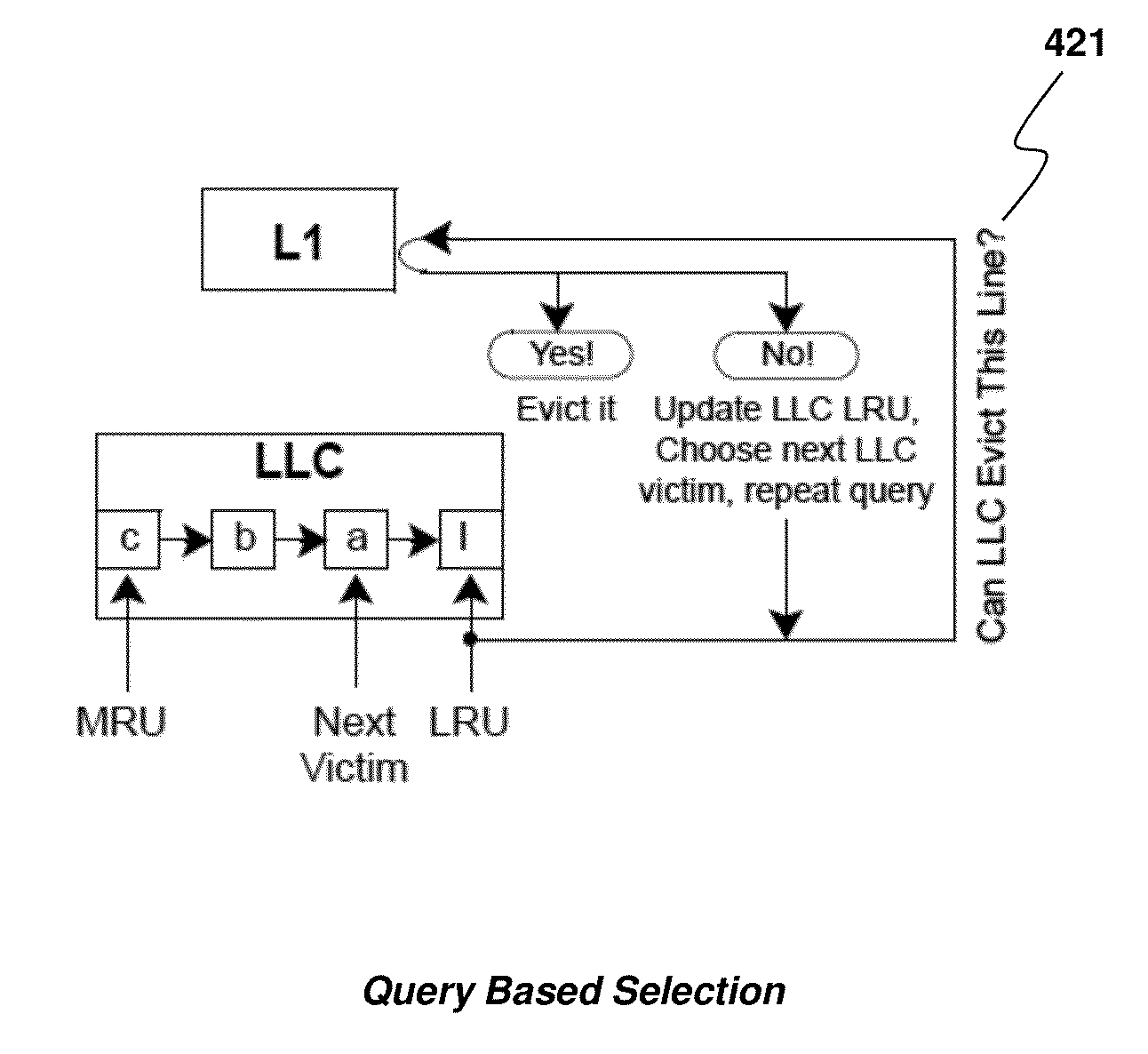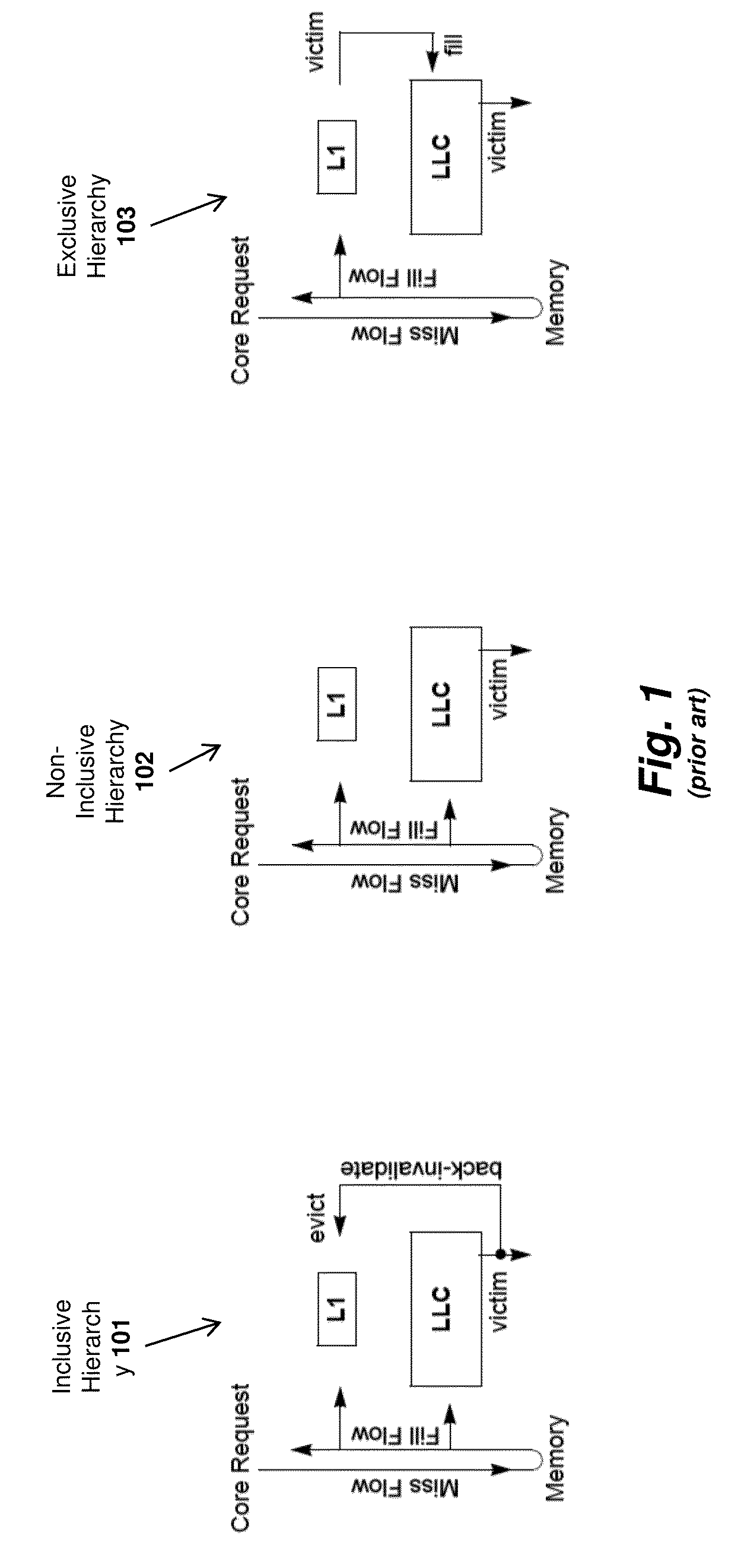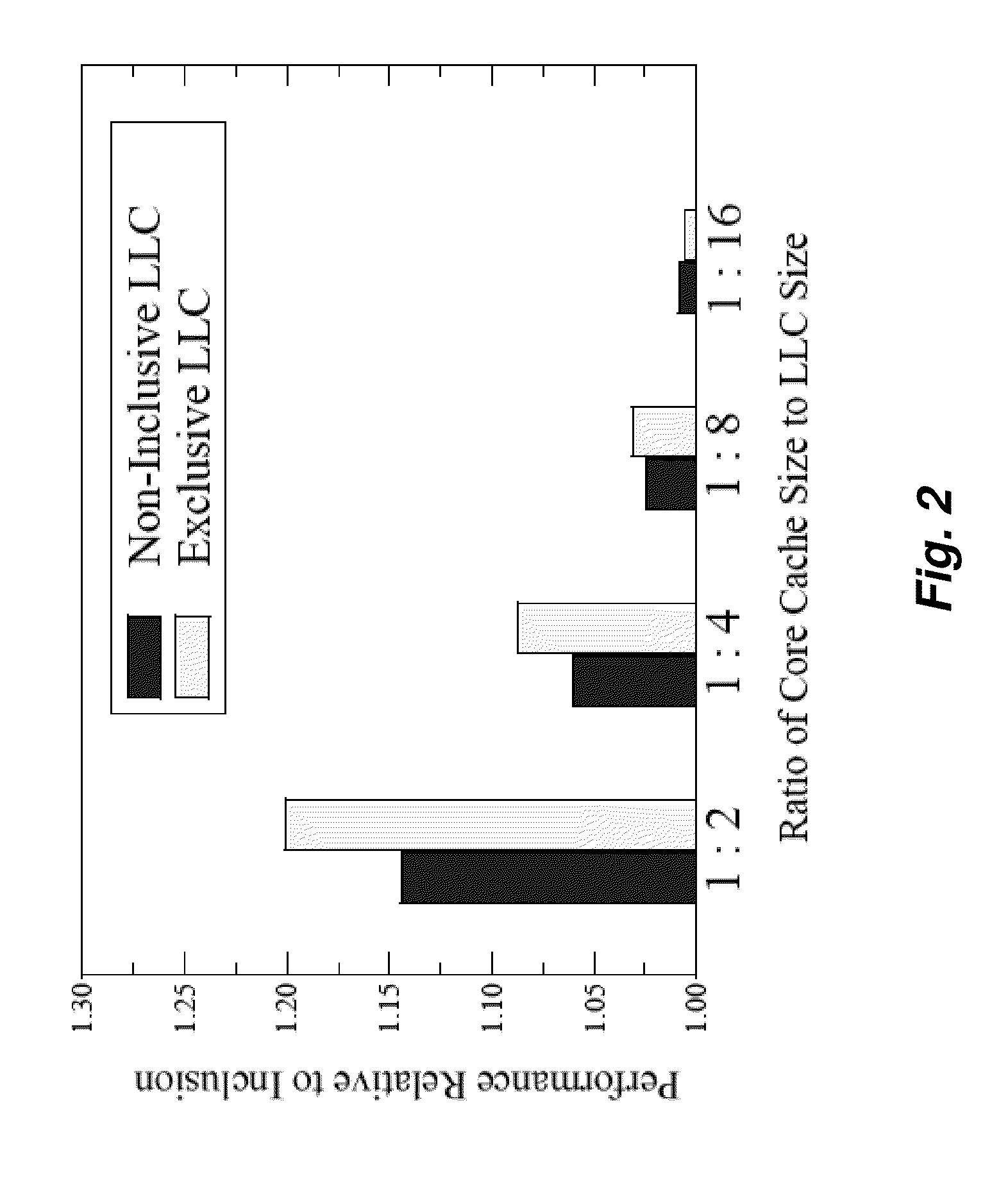Method and apparatus for achieving non-inclusive cache performance with inclusive caches
a cache and non-inclusive technology, applied in the field of apparatus and methods for achieving non-inclusive cache performance with inclusive caches, can solve the problems of limiting performance and breaking the coherence benefi
- Summary
- Abstract
- Description
- Claims
- Application Information
AI Technical Summary
Benefits of technology
Problems solved by technology
Method used
Image
Examples
Embodiment Construction
I. Introduction
[0020]It is a widely held belief that the primary benefits of a non-inclusive cache hierarchy come from the increase in the effective caching capacity. However, the inventors of the present application have determined that one important benefit of non-inclusion is the elimination of inclusion victims and not the extra cache capacity. In light of this observation, it is illustrated below that that inclusive hierarchies can perform similar to non-inclusive hierarchies by preserving hot lines in the core caches and extending the life time of these lines in the LLC. Proposed below are Temporal Locality Aware (TLA) inclusive cache management policies to reduce the frequency of harmful inclusion victims. The success of TLA policies requires identifying lines that have high temporal locality in the core caches and preventing LLC replacement of these lines until their temporal locality is exhausted in the core caches. Three TLA cache management policies are described where th...
PUM
 Login to View More
Login to View More Abstract
Description
Claims
Application Information
 Login to View More
Login to View More - R&D
- Intellectual Property
- Life Sciences
- Materials
- Tech Scout
- Unparalleled Data Quality
- Higher Quality Content
- 60% Fewer Hallucinations
Browse by: Latest US Patents, China's latest patents, Technical Efficacy Thesaurus, Application Domain, Technology Topic, Popular Technical Reports.
© 2025 PatSnap. All rights reserved.Legal|Privacy policy|Modern Slavery Act Transparency Statement|Sitemap|About US| Contact US: help@patsnap.com



